As stewards of both the community and the local water supply, we take our plans for the future seriously. We’re committed to serving you high-quality water for decades to come, and our slate of long-term plans accounts for changes in the budget as well as changes in the Carrboro-Chapel Hill community.
Strategic Plan
The flagship of our long-term goals and initiatives is the Strategic Plan. It’s the umbrella under which we formulate all other plans. A new Strategic Plan was approved by the OWASA Board of Directors on September 8, 2022. The plan set strategic priorities to guide OWASA’s investments and resources for the next five years.
OWASA’s key plans and strategies also include:
-
Water Conservation Plan
-
Diversity, Equity, Inclusion and Belonging Plan
-
Affordability Program
-
The Long-Range Water Supply Plan
-
The Long-Term Water Conservation & Demand Management Program
-
The Water Shortage Response Plan
-
The Capital Improvements Program
-
Asset Management Plan
-
Operating Trends Report
-
Energy Management
-
Forest Management
-
Key Performance Indicators

Sustainability Goals & Objectives
Sustainability is of utmost importance to us. It’s one of our guiding values, and we take our commitment to sustainability seriously. After all, the health and welfare of the Carrboro-Chapel Hill community relies on our ability to reliably deliver high-quality drinking water and provide wastewater services that effectively protect the environment and public health. We will continue meeting this challenge in a sustainable manner through continuous improvement in all areas of our operation.
OWASA’s Statement of Sustainability Goal and Objectives defines our sustainability vision and values and addresses six key areas: Environmental Performance, Resource Stewardship, Materials Use, Social Performance, Our Employees and Economic Performance. These sustainability and resource stewardship efforts affect all decisions within our organization — from purchasing hybrid vehicles and recycled products to the increasing use of renewable energy for our vehicles and treatment processes.



Financial Reporting & Policy
As a non-profit public agency operating on cost-of-service principles, fiscal responsibility is one of the keys to successful management of the water supply.
Our Financial Management Policy establishes our practices and policies for general financial management including reserve funding and debt service coverage, asset management, investment, debt, rate-setting and customer care. Additionally, our 15-year Financial Management Plan identifies projected operating and capital improvement costs, debt payments, customer demands and potential rate increases needed to reliably sustain and manage the community’s drinking water, wastewater and reclaimed water systems.
The Budget
OWASA is required by law to maintain a balanced budget. To the fullest extent possible, the Annual Budget is established to achieve the financial performance targets in our Financial Management Policy.
Our Annual Budget is the formal, Board-approved plan showing anticipated revenues and specifying how our financial resources will be invested or allocated in a given fiscal year. In other words, the Annual Budget is our near-term “financial roadmap” for prioritizing and carrying out our objectives and programs. Expenditures include operating and maintenance expenses, debt service payments and capital expenditures; revenues include operating revenues — primarily from your monthly bills — and non-operating revenues, such as fees received for new connections, interest earnings and grant funds.
We operate on a fiscal year that begins on July 1 and ends on June 30, and, as a single-purpose governmental entity, our financial activities are reported as a sole-enterprise fund. We are not allowed to expend any monies regardless of their source — including bond proceeds and federal, state or private grants, loans or special assessments — except in accord with the Annual Budget.
How we perform against our Annual Budget is documented in our Comprehensive Annual Financial Report:
Sign up for email notices about budget and rate items.

Auditing
In accord with law, an independent auditor performs an Annual Audit of OWASA’s finances. The audit complies with accepted reporting and accounting standards, and our Comprehensive Annual Financial Report has received the Government Finance Officers Association’s Certificate of Achievement for Excellence in Financial Reporting.



